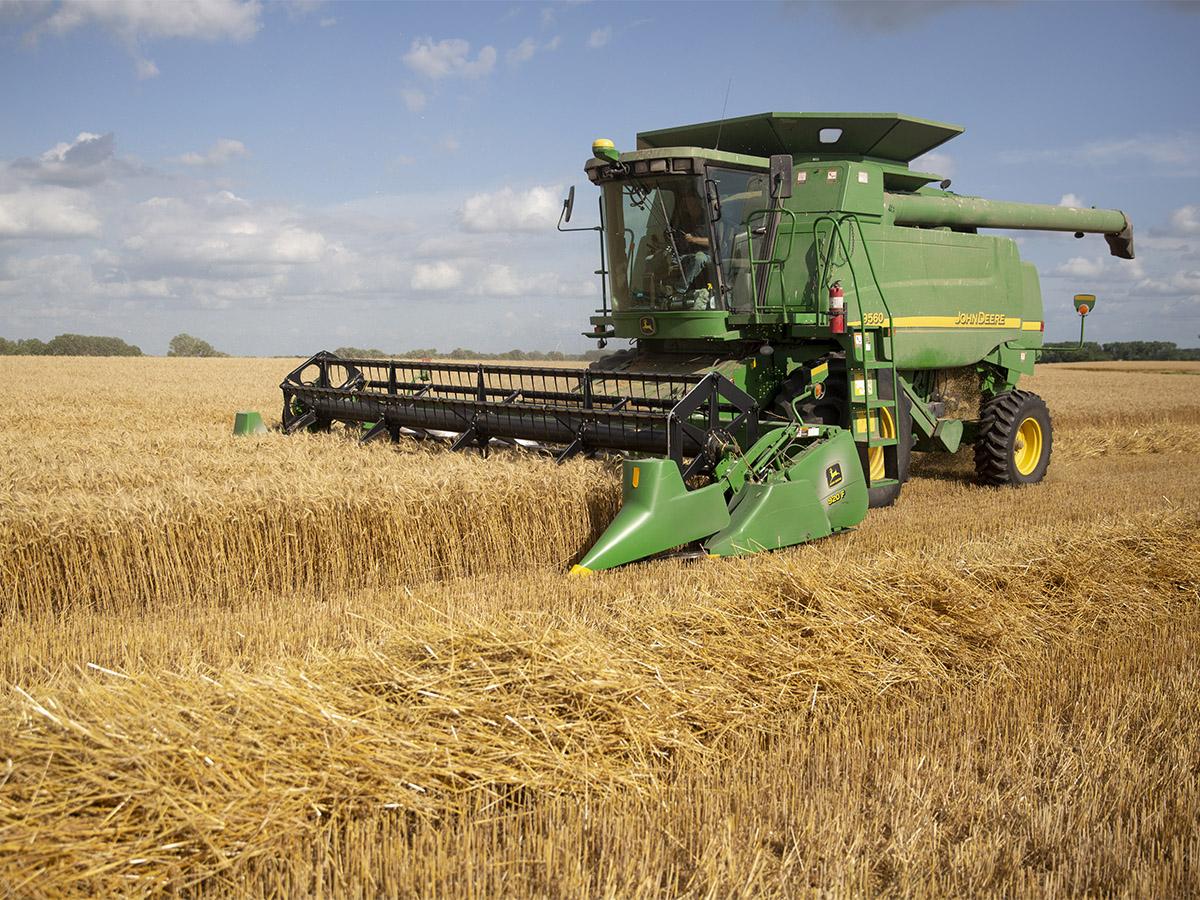Despite the US-China trade war crushing American agricultural exports in 2019, John Deere and FMC Corporation’s share prices have both gained recently as the US and China finally put pen to paper; is this a sign of things to come?
Following the arrival of a Chinese delegation in Washington two weeks ago, the much-vaunted Phase One Trade deal was finally signed by US President Donald Trump and Chinese vice premier Lui He. This has helped to stymie US agricultural stocks’ poor share price performance, with Agriculture stalwart John Deere and agricultural sciences giant FMC’s share prices trading flat.
Crop farmers in the US have been widely considered one of the biggest losers in the US-China trade war, with China cutting imports of American farm goods including soybean and sorghum plummeting by 50% between 2017 and 2019.
The plight has increased further over the past year by extreme weather damaging crops in the US. The 12 months ending May 2019 was the wettest 365 days on record. In August, over 19 million hectares of US farmland was unplantable – the highest levels since records began. The wet weather caused planting to be pushed back and by winter many crops including corn, sugar beets and potatoes were destroyed or unfit for harvest.
19million
Number of unplantable hectares due to highest ever recorded rainfall
However, the plight of crop farms across the US – which in the most part are family-owned and independent – does not quite reflect the narrative in the market. US agricultural stocks largely made gains through 2019, despite the trade war woes.
Agricultural support
The reason is partly due to the business behind the majority of US farming stocks supporting agricultural production, which includes machinery, fertiliser, food processing and animal feed or vaccinations. Moreover, the lack of sales to China hasn’t stopped farms needing the utilities to grow crops due to a second reason. To make up for losses to farms as a result of his trade war, Trump and his administration paid out $24.5bn in aid to farmers in 2019, as long as they kept growing crops – whether or not they would be harvested and sold.
Benchmark agricultural ETF the VanEck Vectors Agribusiness ETF gained over 20% through the year – placing agriculture in the middle of the pack for US industries for 12-month growth. It is worth noting that only half of the ETF’s constituents are US stocks, however.
20%
Growth of the VanEck Vectors Agribusiness ETF in 2019
The US agricultural stocks that made gains in 2019 include insecticide producer FMC Corporation [FMC] and agricultural machinery firm John Deere [DE] which climbed 55.6% and 16% respectively.
Cereal processing firm Archer Daniels Midland Company [ADM] gained 13.1% while farmland REIT Farmland Partners [FPI] gained 49%, after having made heavy losses throughout 2017 and 2018.
CHS Inc [CHSCP], the largest farmer cooperative in the US, gained 4.5%, and pushed 2% higher in January on news of the Phase One deal.
The hope now is that the gains could accelerate in the near future following the Phase One trade deal, which could trigger a growth in sales for farmers and possibly even lead to an increase in grain production. Trump has said that under the terms of the deal China would double the level of US agricultural product imports across the coming two years.
No quick fix
But the gains might not come right away and things may even get worse for US agriculture before the situation improves. More difficulties are expected for farmers in early 2020 due to large stockpiles of soybeans and other grains, while many are pegging survival on a new round of government handouts which are yet to be announced.
Further complicating the matter is that China is yet to update its purchase quotas for US produce, and some in China’s government have suggested that this won’t be happening anytime soon. “These are global quotas. We will not adjust them just for one country,” Han Jun, China’s vice minister of agriculture and rural affairs, recently told Chinese financial news site Caixin, according to a CNBC translation.
Whether this is simply some hardball rhetoric remains to be seen. Traders would do well to carefully look at the details and dates in the Phase One deal, as well as evidence of Chinese purchases picking up.
Either way, grain farmers are not expecting an immediate change. Speaking at a conference in North Dakota, CHS Inc CEO Jay Debertin recently commented: “We won’t go immediately back to where we were 18 months ago – maybe not for a long time.”
“We won’t go immediately back to where we were 18 months ago – maybe not for a long time” - CHS Inc CEO Jay Debertin
Pigs, pigs, pigs
An agricultural product that US farmers and producers are hopeful of benefiting from with growing sales to China following the Phase One deal is livestock. An epidemic of African swine fever in Chinese hogs – which has historically provided gargantuan domestic demand – wiped out 55% of the country’s pig population, according to analysts at Rabobank.
The disease caused global pork prices to rise in 2019, which benefitted US meat producers such as Tyson Foods [TSN] (a VanEck Vectors Agribusiness ETF constituent), with the price hike helping to propel the US meat behemoth to gains of more than 70% last year.
But with Chinese tariffs on US pork standing at 72%, despite some uptick, US pork producers did not see the level of upside in sales they would have before the trade war began. Instead, Brazilian producers like Minerva, the best performing meat stock of 2019, reaped the reward. “Label me both disappointed and disgusted that the opportunity of a lifetime was blasted on account of politics,” one trader told The Wall Street Journal.
72%
Chinese tariffs on US pork
Now that the Phase One deal is signed, however, the hope is that the tariffs on hog sales will be reduced, leaving the potential for US pork sales to China to explode, massively benefiting the likes of Tyson and Hormel [HRL]. “We’re encouraged that a deal has been reached and we’re anxious to get the details,” Joe Schuele, head of communications at the US Meat Export Federation told Axios. Across the board, it is China that will be holding the keys to growth for US agriculture in 2020.
Continue reading for FREE
- Includes free newsletter updates, unsubscribe anytime. Privacy policy





